Imagine a material that’s incredibly strong, yet remarkably lightweight. A metal that defies corrosion and boasts exceptional biocompatibility. That’s the magic of titanium metal powder, a revolutionary material reshaping various industries. But what exactly is it, and how does this fine, metallic dust transform into groundbreaking applications? Buckle up, science enthusiasts and aspiring engineers, because we’re about to embark on a journey into the fascinating world of titanium metal powder.
Composition, Properties, and Characteristics of Titanium Metal Powder
At its core, titanium metal powder is a finely divided form of the element titanium (Ti). This element, the ninth most abundant in Earth’s crust, is renowned for its unique blend of properties:
- Strength-to-weight ratio: That’s the essence of titanium’s strength-to-weight ratio. It’s significantly lighter than steel yet boasts exceptional strength, making it ideal for applications demanding both.
- Corrosion resistance: Think of the relentless rust that plagues iron. Titanium, on the other hand, forms a strong, protective oxide layer that shields it from corrosion, even in harsh environments like saltwater.
- Biocompatibility: Our bodies are complex ecosystems, and implanting foreign materials can be tricky. Titanium shines here too, exhibiting excellent biocompatibility, making it the perfect choice for medical implants like artificial joints.
Here’s a table summarizing the key characteristics of titanium metal powder:
| Bất động sản | Miêu tả |
|---|---|
| Sáng tác | Primarily titanium (Ti), with possible trace elements depending on the specific grade |
| Appearance | Gray powder, ranging in particle size from microns to hundreds of microns |
| Sức mạnh | High strength-to-weight ratio, surpassing steel in some applications |
| Mật độ | Lower density compared to steel, offering weight reduction benefits |
| Khả năng chống ăn mòn | Excellent resistance to corrosion, even in harsh environments |
| tính tương thích sinh học | Well-tolerated by the human body, making it suitable for medical implants |
| Điểm Nóng Chảy | High melting point, enabling applications exposed to extreme temperatures |
These properties make titanium metal powder a versatile material with a vast array of applications. But before we delve into its uses, let’s explore the different types and their unique characteristics.
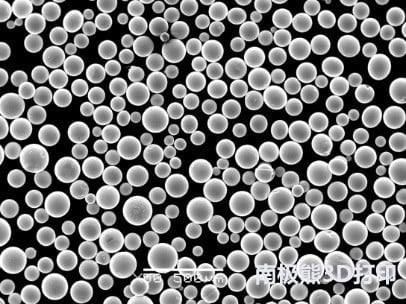
Exploring Different Types of Titanium Metal Powder
The world of titanium metal powder isn’t a one-size-fits-all scenario. Various types exist, each catering to specific needs. Here are ten prominent examples:
- CP Ti (Commercially Pure Titanium): The purest form of titanium metal powder, boasting over 99% titanium content. It offers excellent corrosion resistance and formability, making it ideal for general-purpose applications and medical implants.
- Ti-6Al-4V (Grade 5): An alpha-beta titanium alloy, the workhorse of the industry. It combines high strength, good ductility, and excellent fabricability. This grade finds applications in aerospace, automotive, and biomedical fields.
- Ti-6Al-4V ELI (Extra Low Interstitials): A variation of Grade 5 with even lower levels of interstitial elements like oxygen and nitrogen. This enhanced purity translates to superior weldability and fracture toughness, making it perfect for demanding aerospace applications.
- Ti-4Al-3Mo (Grade 23): Another alpha-beta alloy known for its exceptional creep resistance at elevated temperatures. This makes it a valuable material for jet engine components and applications requiring high-temperature performance.
- Ti-10V-2Fe-3Al (Grade 9): A high-strength beta titanium alloy known for its exceptional hardenability. It offers superior strength compared to CP Ti and finds applications in high-performance sporting goods and aerospace components.
- Ti-Ni (Nickel Titanium): A unique alloy known for its shape memory effect. This allows the material to “remember” its original shape after deformation, making it ideal for medical stents and other shape-recovery applications.
- Ti-Mo (Titanium Molybdenum): An alloy offering a good balance of strength, ductility, and corrosion resistance. It finds applications in chemical processing equipment and marine environments.
- Ti-Pd (Titanium Palladium): A biocompatible alloy with enhanced corrosion resistance compared to CP Ti. This makes it a promising candidate for dental implants and other biomedical applications.
- Gas-atomized Titanium Powder: Produced by injecting molten titanium into a high-pressure gas stream, creating spherical particles with excellent flowability and packing density. This type is ideal for additive manufacturing processes like 3D printing.
- Plasma-atomized Titanium Powder: Produced by exposing molten titanium to a high-temperature plasma stream, resulting in a finer and more spherical powder compared to gas-atomized variants. This type offers improved surface area and packing density, making it suitable for high-performance applications like jet engine components.
Choosing the Right Powder:
As you can see, the selection of titanium metal powder is vast, each type boasting unique properties tailored for specific applications. Here’s an analogy to solidify this concept: Imagine you’re building a house. You wouldn’t use the same materials for the foundation as you would for the roof. Similarly, the ideal titanium metal powder for a medical implant will differ significantly from the one chosen for a high-performance aircraft component. Factors like desired strength, corrosion resistance, biocompatibility, and even the specific manufacturing process will influence your choice.
the Applications of Titanium Metal Powder
The exceptional properties of titanium metal powder translate into a remarkable range of applications across various industries. Here’s a glimpse into this diverse world:
Ngành hàng không vũ trụ: The relentless pursuit of lightweight yet robust materials makes titanium metal powder a superstar in aerospace. From jet engine components like compressor blades and discs to airframe parts, titanium powder’s strength-to-weight ratio and high-temperature performance make it a game-changer.
Biomedical: When it comes to implants that need to seamlessly integrate with the human body, titanium metal powder shines. Artificial knees, hips, and dental implants all leverage its biocompatibility and corrosion resistance. Moreover, the ability to create intricate structures using additive manufacturing techniques like 3D printing further expands the possibilities for customized implants.
Ô tô: The quest for fuel efficiency and performance improvement has led the automotive industry to embrace titanium metal powder. Components like connecting rods, suspension parts, and even some high-end wheels can benefit from the weight reduction and strength offered by this material.
Consumer Goods: From high-end sporting goods like golf clubs and bicycle frames to designer watches and jewelry, titanium metal powder is finding its way into the consumer market. Its unique combination of aesthetics, strength, and lightweight nature makes it an attractive option for discerning consumers.
Xử lý hóa học: The exceptional corrosion resistance of titanium metal powder makes it a valuable material for equipment used in harsh chemical environments. Reactors, vessels, and piping systems can all benefit from its ability to withstand exposure to aggressive chemicals.
Emerging Applications: The potential of titanium metal powder is constantly expanding. Researchers are exploring its use in:
- Additive manufacturing of complex structures for applications like aerospace components and medical implants.
- Lightweight armor for soldiers and personal protective equipment.
- Bioprinting for creating artificial tissues and organs.
- Environmental remediation for removing pollutants from water and soil.
This is just a glimpse into the vast potential of titanium metal powder. As technology advancements continue, we can expect even more innovative applications to emerge in the coming years.

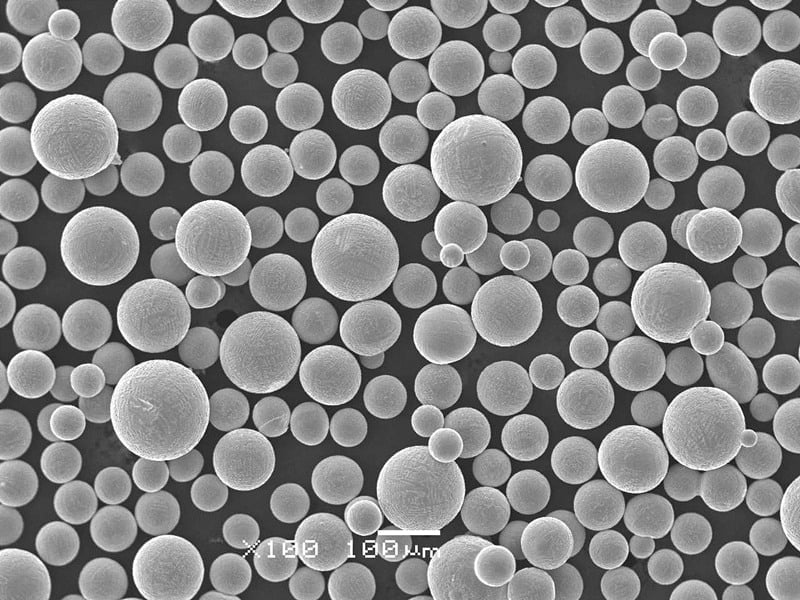
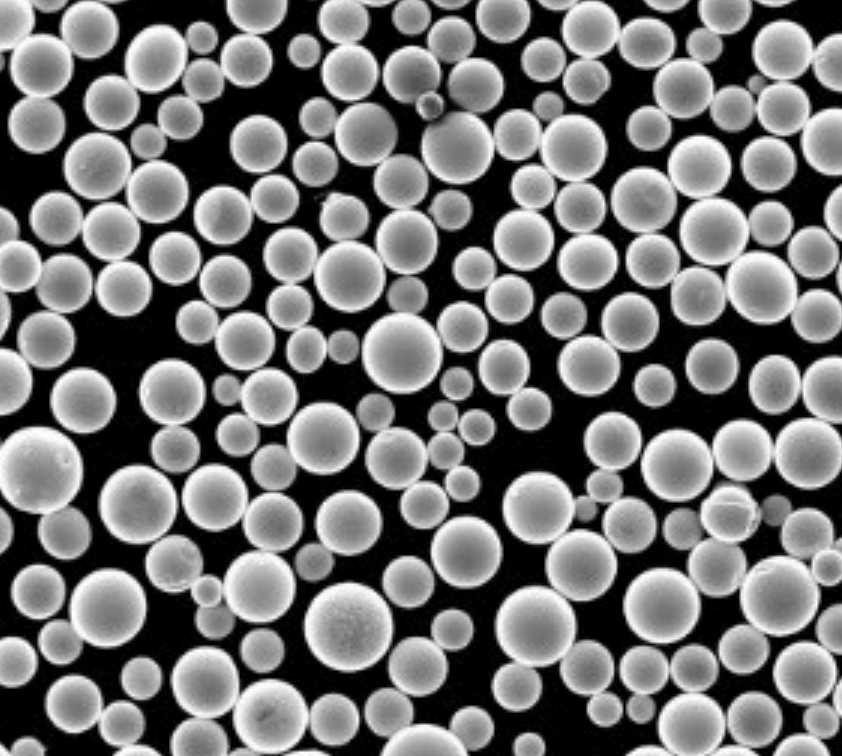
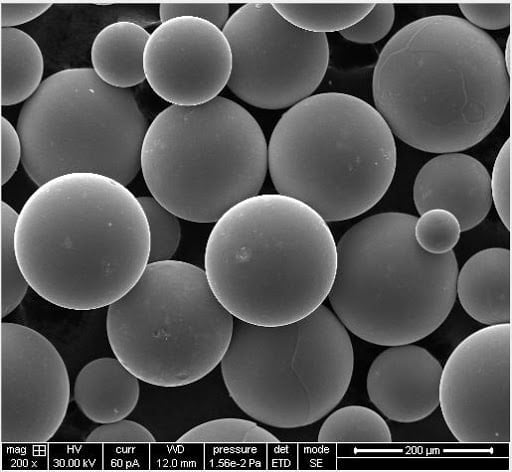
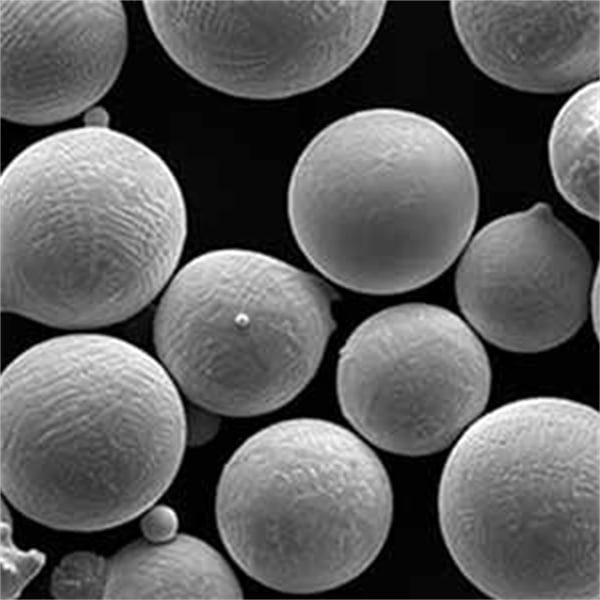
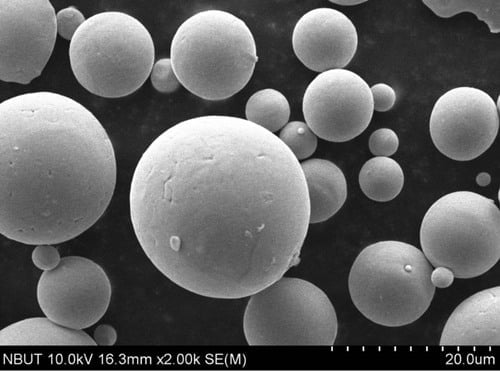
Specifications, Sizes, Grades, and Standards
Delving deeper, let’s explore the technical specifications of titanium metal powder. Here’s a table outlining some key parameters:
| Tham số | Miêu tả |
|---|---|
| Kích thước hạt | Ranging from microns (thousandths of a millimeter) to hundreds of microns, depending on the desired application. Finer powders offer better surface area and packing density but can be more challenging to handle. |
| Grades | Various grades of titanium metal powder exist, each with a specific composition tailored for desired properties. Common grades include CP Ti (commercially pure titanium), Ti-6Al-4V (Grade 5), and Ti-4Al-3Mo (Grade 23). |
| Tiêu chuẩn | ASTM International (ASTM) sets the standards for titanium metal powders. These standards define the chemical composition, particle size distribution, and other critical parameters to ensure consistent quality. |
| Khả năng chảy | The ease with which the powder flows is crucial for various manufacturing processes. Factors like particle size and shape influence flowability. |
Understanding these parameters is essential for selecting the right titanium metal powder for a specific application. For instance, a 3D printing process might require a finer powder with good flowability for optimal layer formation, while a powder metallurgy application might prioritize a coarser powder for efficient packing.
Pros and Cons of Titanium Metal Powder
Like any material, titanium metal powder has its own set of advantages and limitations. Here’s a breakdown to help you make informed decisions:
Advantages:
- Exceptional strength-to-weight ratio: Offers significant weight reduction compared to traditional materials like steel.
- Superior corrosion resistance: Resists corrosion even in harsh environments, making it ideal for long-lasting applications.
- Excellent biocompatibility: Well-tolerated by the human body, perfect for medical implants.
- High-temperature performance: Maintains its strength and properties at elevated temperatures, valuable for aerospace and other high-heat applications.
- Design flexibility: Additive manufacturing techniques like 3D printing allow for the creation of complex geometries with titanium metal powder.
Disadvantages:
- High cost: Titanium powder is a relatively expensive material compared to some alternatives like steel.
- Manufacturing challenges: Certain manufacturing processes using titanium metal powder can be complex and require specialized equipment.
- Reactivity: Titanium powder can be reactive with air and moisture, necessitating careful handling and storage.
- Limited availability: Compared to some widely used materials, titanium metal powder availability might be restricted in certain regions.
Making the Call:
Weighing the pros and cons is crucial before incorporating titanium metal powder into your project. While its exceptional properties offer undeniable advantages, the cost and potential manufacturing challenges need to be carefully considered. When used strategically, titanium metal powder can be a game-changer, but it’s vital to ensure it aligns with your project’s budget and technical capabilities.
Suppliers and Pricing of Titanium Metal Powder
The global market for titanium metal powder is experiencing steady growth, with several prominent suppliers catering to diverse needs. Here’s a table outlining some key suppliers and estimated pricing ranges:
| Nhà cung cấp | Địa điểm | Products | Estimated Price Range (USD per kg) |
|---|---|---|---|
| AMETEK Inc. | Hoa Kỳ | Gas-atomized and plasma-atomized titanium powders in various grades | $100 – $400 |
| AP Powder Company | Hoa Kỳ | Titanium and titanium alloy powders for additive manufacturing | $80 – $300 |
| Höganäs AB | Thụy Điển | Gas-atomized titanium powders for metal injection molding and 3D printing | $120 – $500 |
| Norsk Titanium AS | Norway | Plasma-atomized titanium powders for aerospace applications | $200 – $700 |
| TLS Technik GmbH & Co. KG | Đức | Titanium and titanium alloy powders for various applications | $150 – $600 |
Pricing Disclaimer: Please note that these prices are estimates and can vary depending on the specific grade, quantity, and supplier. It’s recommended to contact potential suppliers directly for the most up-to-date pricing information.

Câu hỏi thường gặp
Here are some commonly asked questions regarding titanium metal powder, presented in a question-and-answer format for easy reference:
Q: Is titanium metal powder strong?
A: Yes, titanium metal powder boasts an exceptional strength-to-weight ratio, surpassing even steel in some applications. This makes it a valuable material for components requiring high strength without excessive weight.
Q: Does titanium metal powder rust?
A: Unlike iron, titanium metal powder exhibits excellent corrosion resistance. It forms a strong, protective oxide layer that shields it from rust and degradation, even in harsh environments like saltwater.
Q: Is titanium metal powder safe for the human body?
A: Titanium metal powder, particularly commercially pure (CP) grades, is well-tolerated by the human body, making it a suitable material for medical implants. Its biocompatibility minimizes the risk of rejection, a crucial factor in long-term implant success.
Q: How is titanium metal powder used in 3D printing?
A: Additive manufacturing techniques like 3D printing can utilize titanium metal powder to create complex, three-dimensional structures. The powder is selectively deposited and fused layer-by-layer to build the desired object.
Q: What are the limitations of titanium metal powder?
A: The primary drawbacks of titanium metal powder include its relatively high cost compared to some alternative materials and the potential complexities involved in certain manufacturing processes. Additionally, titanium powder can be reactive and requires careful handling to prevent contamination.
About 3DP mETAL
Product Category
LIÊN HỆ
Bạn có thắc mắc không? Hãy gửi tin nhắn ngay cho chúng tôi! Sau khi nhận được tin nhắn của bạn, chúng tôi sẽ xử lý yêu cầu của bạn với cả một đội ngũ.
